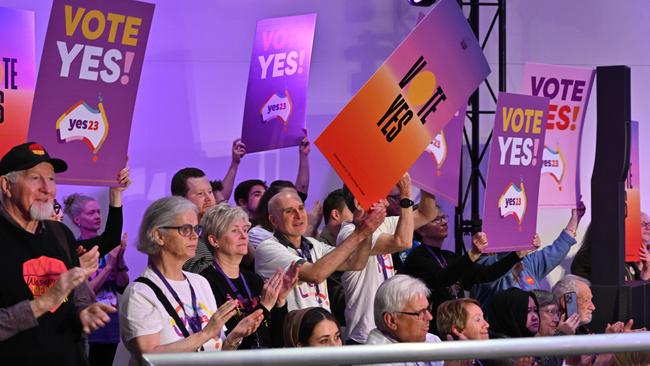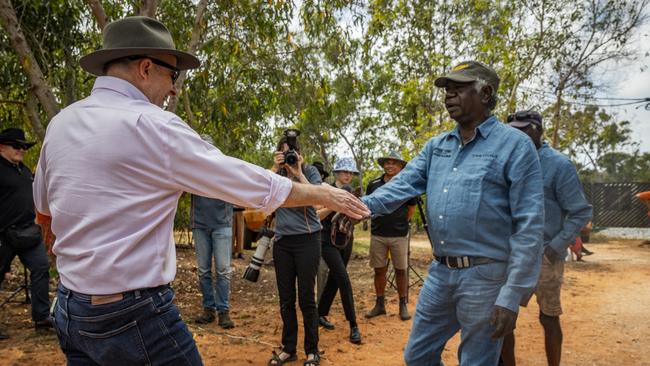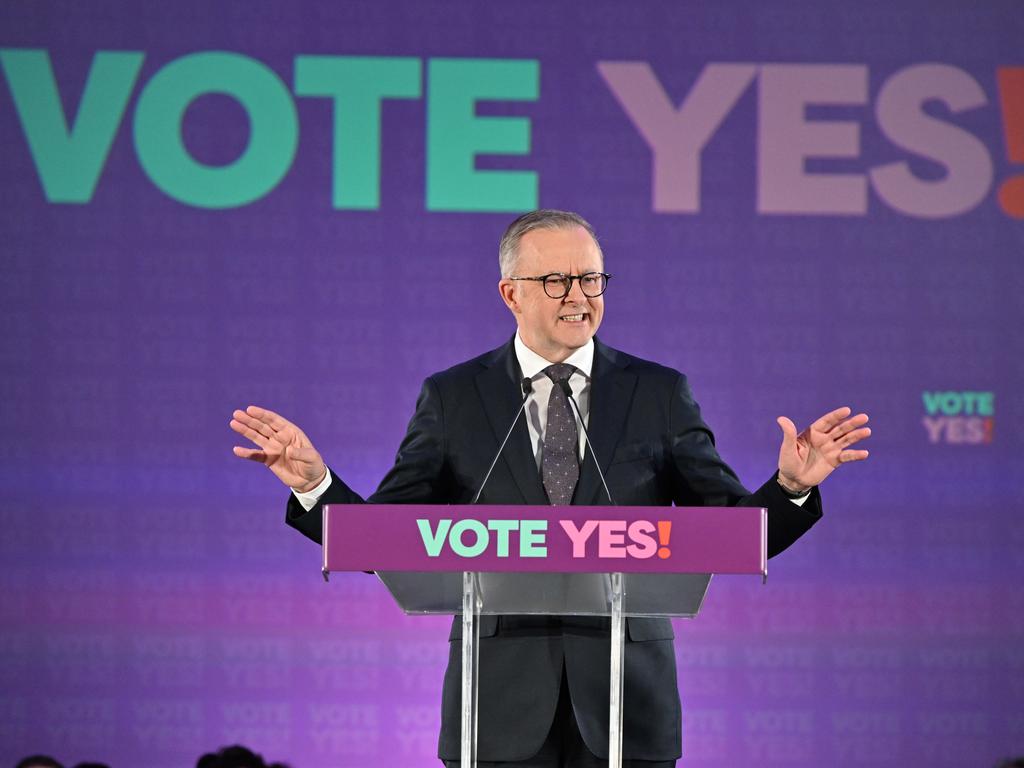Anthony Albanese is asking voters to make a leap of faith on the voice and it will his time in office


Profound political and social consequences are at stake. But the Prime Minister’s pursuit of a historic occasion comes at a time of increasing threats to living standards, with equally profound economic consequences in play.
Launching the Yes campaign on Wednesday, Albanese put his leadership firmly behind the outcome of the referendum. He now owns the Yes case.
Having set October 14 as the date for the first referendum in 24 years, another defining moment for Australia’s historical record has been inscribed.
It is now also a defining feature of Albanese’s prime ministership.

He is appealing to the sense of the moment, an important step forward on the road to a reconciled Australia. He seeks to write a new chapter into the nation’s cultural story.
His optimism rests in the belief that this message, a rejection of fear, will resonate through the cities and regions as polling day approaches. But the tension between two competing forces – the economic and social agendas – is becoming acute.
This now poses a significant dilemma for Albanese. As Prime Minister, he must deal with the political difficulties of the voice in his quest for a positive outcome.
The debate is highly contested. Many Australians remain unconvinced. And while Albanese wants Australians to look beyond the here and now in a spirit of generosity, it is his government that has contributed to diminishing its appeal through uncertainty.
The current political challenges facing his government now require Albanese to manage simultaneous demands on his leadership. Voter engagement is critical.
He says he can “walk and chew gum” at the same time.

But there can be no doubt this presents a critical challenge for the Prime Minister more than midway through his first term.
The generosity Albanese asks of Australians in “grasping the hand of friendship” in the advancement of reconciliation will be tested, as other key indicators in the economy move against the government and households.
While inflation is moderating, cost-of-living pressure will persist for longer than expected.
A warning of an electricity supply crisis on the near horizon now also looms, with the increasing likelihood of blackouts this summer across the eastern states.
On the same day the Prime Minister stood up in South Australia to announce the date of the voice referendum, the energy market operator was preparing to release dire warnings about the national energy market.
The underlying premise is that the Albanese government’s ambitious pursuit of energy market transformation and climate change targets is now on the precipice.
It warns of imminent risk to the national energy market without urgent investment in new production and firm capacity.
With almost two thirds of the nation’s coal fleet to close within 10 years, the need for new dispatchable generation has now become critical.
Without it, AEMO says, the reliability of the NEM will be put at risk. The reliability of energy supply to consumers cannot be assured without urgent investment.
Ironically, it was South Australia, which Albanese sees as critical to the success of the Yes campaign, which is named as one of the states that will struggle the most with reliable electricity supply to consumers.
The future of the reconciliation cause may hinge on the outcome of the referendum, just as Albanese’s authority is also either strengthened or diminished by it.
But equally, how Albanese addresses the economic pressures on households – including a new electricity supply shock – will also be critical to the maintenance of his credibility on economic management.
His ability to cut through on economic messaging while juggling the politics of the voice campaign will now be put to the test.







Anthony Albanese pursues a great leap forward in the reconciliation story, but asks Australians to make a great leap of faith to achieve it.